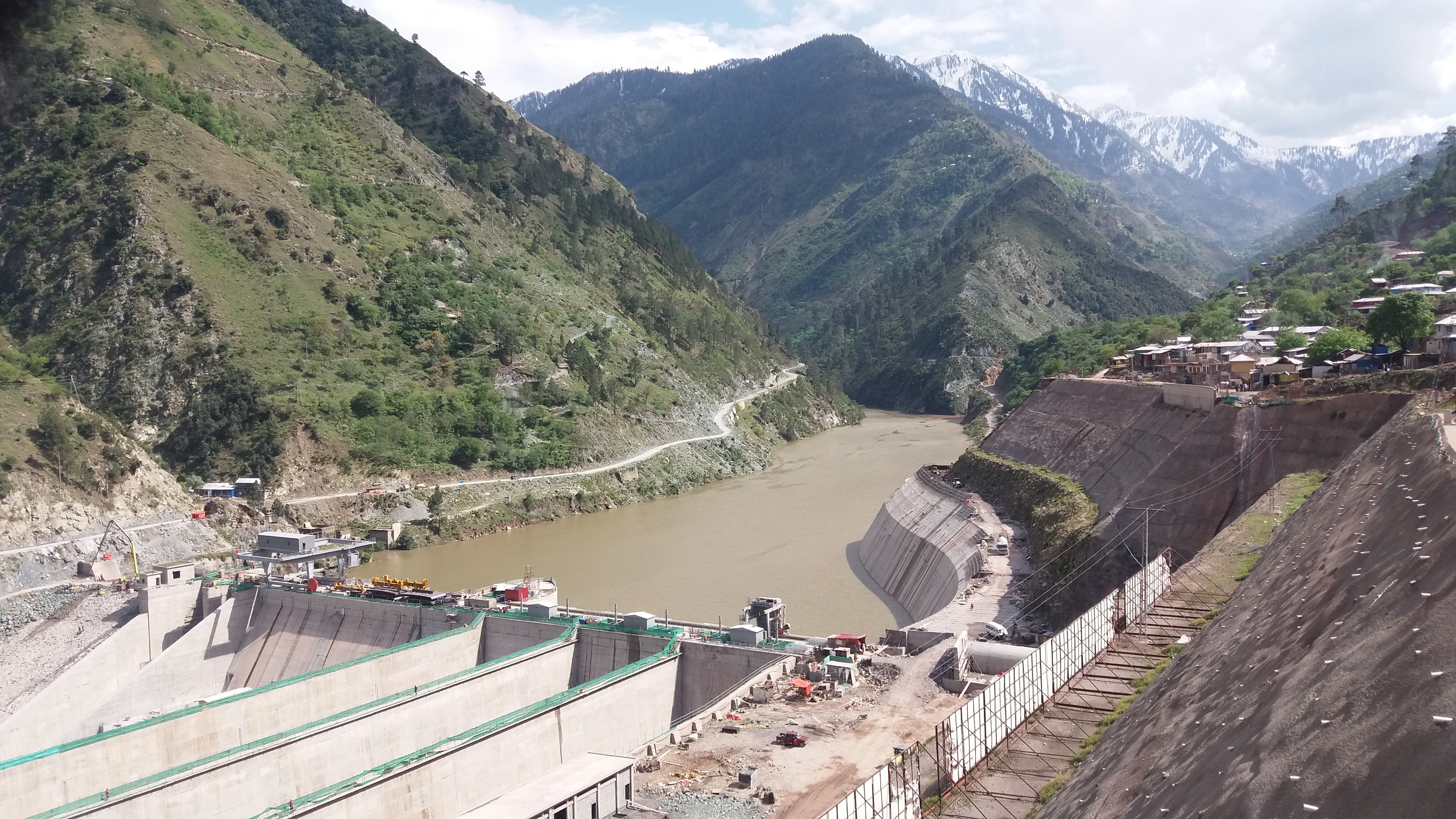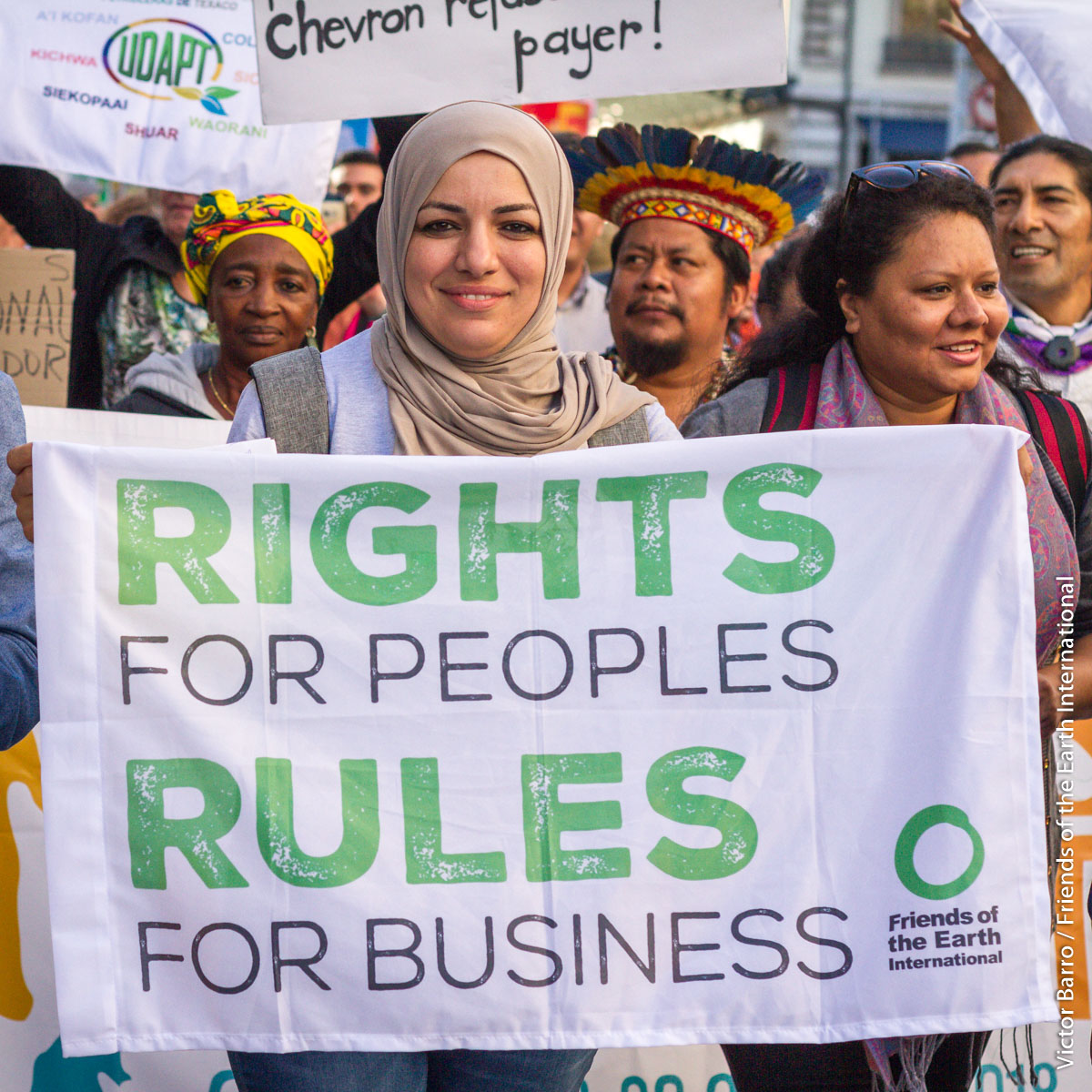False Solutions
False Solution 1:
Sustainable Development?
The concept of ‘Sustainable development’ deployed by transnational actors, mainstream environmental politics, United Nations and other non-governmental organizations following the Environmental, Social and Governance (ESG) paradigm focuses on planetary boundaries (Gonzalez 2015). It is important to see beyond the agenda and critically examine the frameworks that perpetuate disparities through the dominance of hegemonic knowledge power and the neoclassical economic models.
Organizations like the World Business Council for Sustainable Development (WBCSD) create false narratives. WBCSD is a global, CEO-led organization of over 200 leading businesses working together to accelerate the transition to a sustainable world with a primary goal to make the stakeholders member companies more successful. Another global false solution is the Global Mining Initiative (GMI) is an international initiative by the International Council of Mining and Metals (ICCM) that claims to operate responsibly and contribute to sustainable development. They promote their efforts to be sustainable through multiple reports highlighting new opportunities for governments and the mining industry to work together and engage with communities and other stakeholders to improve the sector’s performance. However, the fundamental mechanisms of extracting minerals destroy the environment, pollute and jeopardize living conditions of local communities.
 Water pollution image for free download from Pixabay License.
Water pollution image for free download from Pixabay License.
In addition, there are other upcoming trends driven by fashion and clothing industry with initiatives to decrease the impact on the environment, and specifically water sector as production of materials depletes water, pollutes it in the process of dyeing and manufacturing. The framework used by these initiatives are formulated by the Sustainable Development Goals (SDGs).
Organization working against the false narrative of Sustainable Development:
Alternative World Water Forum (AWWF)
The objective of the Alternative World Water Forum (AWWF) - in French, the Forum Alternatif Mondial de l'Eau (FAME) - is to create a concrete alternative to the sixth World Water Forum (WWF) which is organized by the World Water Council. This Council is a mouthpiece for transnational companies and the World Bank and they falsely claim to head the global governance of water.- [Article] Blue Planet Project Opposes The World Water Forum
- Reports & Publications
- Summary Of The Workshop “Internationalisation Of Water Battles”
Resources and Readings:
- [Paper] The sustainable development goals, anthropocentrism and neoliberalism
- Appropriation of ‘Human Right to Water’ by Institutions, Transnational corporations
- [Report] Water Rush: Why B.C.’s Water Sustainability Act Fails To Protect Water
- [Paper] Critical sustainability: incorporating critical theories into contested sustainabilities
- [Paper] Unsustainable development
- [Book] Unsustainable Oil: Facts, Counterfacts and Fictions
- [Blog Post/Video] Is Green Infrastructure Fair?
False Solution 2:
Greenwashing
Greenwashing mechanisms are projecting false solutions like certification programs, water footprint offset schemes, sustainable operations, leadership mandates in corporations, public-private partnerships, advancing corporate social responsibility (CSR), and clean development mechanism (CDM) which relies on carbon credits to fund/subsidise hydropower projects as ‘ecologically friendly’ or ‘clean’ energy projects.
A report on ‘The Global Land Rush and Climate Change’ hypothesizes that climate change affects land acquisition in two ways. First, the regulations imposed by the government in response to recent ‘green’ energy and through ‘land intensive’ climate mitigation policies and second, the impacts of climate change on agricultural production have raised concerns over food and energy security leading to heightened demand for land. It is a problematic approach to resolve the climate crisis as it is clear that adjustments to our current capitalist economic system, by introducing greater efficiency and substituting ‘green’ energy sources for fossil fuels, will not be enough to solve the emerging crises.
The global south was converted into a ‘carbon dump’ through the establishment of the Clean Development Mechanism (CDM) which, under the 1997 Kyoto protocol allowed nations to buy carbon from developing countries, leading to an adaptation fund to be financed through taxing CDM transactions forming what critics called ‘carbon imperialism’. Similarly, European Union’s policies initiated the transformation of land into a global commodity. One of the Clean Development Mechanism programs like the Renewable Energy Directive (RED) is a great example of green grabbing in Europe. RED played a critical role for agrofuels triggering the oil palm boom in Southeast Asia and its Everything But Arms (EBA) agreement helped fuel global land grabbing in countries like Cambodia.
Organizations working against Greenwashing:
La Via Campesina
La Via Campesina is an international movement bringing together millions of peasants, small and medium size farmers, landless people, rural women and youth, indigenous people, migrants and agricultural workers from around the world. Built on a strong sense of unity, solidarity between these groups, it defends peasant agriculture for food sovereignty as a way to promote social justice and dignity and strongly opposes corporate driven agriculture that destroys social relations and nature.- [Publication] Seed Stories | Fighting Against the Privatisation of Life
- [Report] La Via Campesina in Action for Climate Justice | Radical Realism for Climate Justice
- [Publication] European Coordination Via Campesina (ECVC) launches a peasant agroecology manual on how to phase out the use of pesticides
- [Newsletter] Land Grabs and Land Justice
GRAIN
GRAIN is a small international non-profit organisation that works to support small farmers and social movements in their struggles for community-controlled and biodiversity-based food systems- [Article] Step aside agribusiness, it's time for real solutions to the climate crisis
- Corporations and Trade Agreements
- [Article] Emissions impossible: How big meat and dairy are heating up the planet
INTERNATIONAL RIVERS
International Rivers protects rivers and defends the rights of communities that depend on them. In their strategic plans, they acknowledge that we are in the midst of a major energy transformation – one that will take us from environmentally destructive, centralized models of energy generation to decentralized solutions that empower communities while protecting the environment.
“ Main dam body - Neelum Jhelum Hydropower Plant” by Asadwarraich is licensed under CC BY-SA 4.0
Readings and Resources on Greenwashing Hydropower dams
- Greenwashing: Hydropower dams
- Fact sheet from International Rivers
- Fight Back Against Greenwashing
- [Article] Hydropower’s Dangerous Bid To Re-cast Itself As ‘Green’
- Statement: Climate Bonds Initiative must abandon its misguided attempt to greenwash hydropower
- Green Washing dirty hydro! CDM
- [Report] Carbon Offset Schemes
More Resources on False solutions relating to clean energy can be found on the Energy and Minerals page [Link here]
False Solution 2:
Green Grabbing & Ecosystem services
Green Grabbing is the appropriation of land and resources for environmental ends. It is rooted in the colonial and neo-colonial resource alienation in the name of the environment. Payment for Ecosystem Services (PES) is a globally promoted policy to foster nature conservation. It is also increasingly propagated as an innovative and self-sustaining governance instrument to support poverty alleviation and to guarantee water, food, and energy securities.
The FAO, the World Bank, Conservation International and others have launched a wide reaching program aiming at the reform of fisheries policy across the world which will have devastating impacts for small-scale fisher folk in the targeted countries and regions. Furthermore, the actors behind the Coastal Fisheries Initiative (CFI) want their reforms to inform global fisheries policy. Likewise, the World Economic Forum, agri-food conglomerates, IT companies and philanthropists (led by the Gates Foundation) have teamed up to spearhead three separate initiatives which could converge and utterly transform the multilateral agricultural system. At stake is influence over four institutions with a combined annual budget of $11 billion and 5100 scientific/professional staff.
Another emerging concern is ocean grabbing.The World Bank’s GPO is one-such legal framework for ‘grabbing’. Bringing together a set of powerful actors – from USAID to the Walton Family Foundation (the family behind Walmart) to big environmental NGOs such as the World Wildlife Fund and the Environmental Defense Fund, GPO’s goal is to spread private property rights over the ocean’s fish resources.
Organization working to create awareness against Green grabbing and Ecosystem services
Transnational Institute (TNI):
TNI’s Corporate Power project develops analysis and proposals on how to end corporate impunity and dismantle corporate power. It is a lead facilitator of the international movement Stop Corporate Impunity and supports international efforts to establish binding international legal obligations for TNCs.

Image from Friends of Earth by Victor Barro is licensed under CC BY 4.0
More resources on Green Grabbing & Ecosystem services
- [Paper] Payment for Ecosystem Services (PES) Schemes
- [Publication] Climate-Smart Agriculture:Drip Irrigation Issues
- [Article] Coastal Fisheries Initiative (CFI)
- [Report] Multilateral Food Agencies
- [Article] World Bank’s Global Partnership for Oceans (GPO)
- Ocean Grabbing Resources
Additional Reading & Resources on Water Issues:
- [Paper] The Global Water Grabbing Syndrome
- [Paper] The Global Politics of Water Grabbing
- [Paper] Introduction to the Special Issue: Water Grabbing? Focus on the (Re)appropriation of Finite Water Resources
- Water Grabbing in the Cauca Basin: The Capitalist Exploitation of Water and Dispossession of Afro-Descendant Communities
- [Factsheet] The New Nafta: How It Impacts Our Water
- [Report] A Thirst for Distant Lands: Foreign investment in agricultural land and water
- [Report] How corporations are planning to Take Control of Local Water Services
- [Paper] The international political economy of the global land rush: A critical appraisal of trends, scale, geography and drivers
- [Report] UnderMining Agriculture- How the Extractives Industries Threaten our Food Systems
- [Paper] Colonizing rural waters: the politics of hydro-territorial transformation in the Guadalhorce Valley, Málaga, Spain
- [Website] Farmland Grab
- [Article] How They Tricked Us: Living with the Gibe III Dam and Sugarcane Plantations in Southwest Ethiopia
- [Movie] Land Grabbing
- [Facebook page] Stop Land Grabbing
- [Article] A New Scramble for Africa: Land Grab & Dispossession of People
- [Article] The Multiple Challenges and Layers of Water Justice Struggles
- [Article] Water Justice: Key concepts, debates and research agendas
- [Article] NYC Watershed Land Acquisition Program
- [Article] Stopping land grabs by university funds: farmers and faculties unite